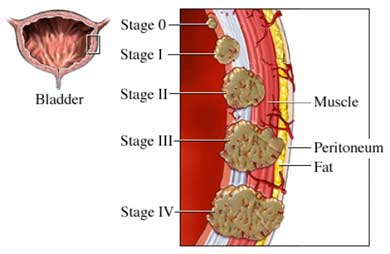- You are here:
- Home »
- Blog »
- non-conventional therapies »
- Newly Diagnosed Bladder Cancer
Newly Diagnosed Bladder Cancer

“We found that curcumin potentiated BCG-induced apoptosis of human bladder cancer cells.
From: Shirley
Subject: bladder cancer
Hi David, It’s my boyfriend that has was just diagnosed with the bladder cancer…he had surgery last week and his dr told him he thought it had grown into the muscle and was referring him to another oncologist at Mayo clinic…sometimes it takes up to 4 weeks to get an appointment and i’m wondering what diet, supplements, and vitamins I can get for him at this point to help..we are considering alternative medicine but need more facts such as the stage and type of cancer cells they found…i’m going to buy ph strips and other supplies but need advice on
- supplements,
- diet, and
- vitamins..
any help would be appreciated.
- Cancer Survivor
- Cancer Coach
- Director PeopleBeatingCancer
Although Bacillus Calmette-Guerin (BCG) intravesical thera- py is a standard treatment for bladder cancer, eventual fail- ure of response is a major problem. Treatments that can augment BCG therapy are urgently needed.
We investigated whether curcumin, a component of Curcuma longa (also called turmeric), has potential to improve the current thera- py using in vitro and in vivo MBT-2 murine tumor models.
We found that curcumin potentiated BCG-induced apoptosis of human bladder cancer cells. BCG stimulated the release of tumor necrosis factor–related apoptosis-inducing ligand (TRAIL) from peripheral mononuclear neutrophils in a dose- and time-dependent manner, whereas curcumin enhanced the upregulation of TRAIL receptors. Electrophoretic mobili- ty shift assay revealed that curcumin also suppressed the BCG-induced activation of the cell survival transcription fac- tor NF-κB. In a syngeneic bladder cancer model, curcumin alone reduced the bladder tumor volume, but a significantly greater reduction was observed when BCG and curcumin were used in combination (P < 0.0001 versus control; P < 0.003 versus BCG alone). This was accompanied by a signifi- cant decrease in the proliferation marker Ki-67 (P < 0.01 ver- sus control; P < 0.01 versus BCG alone) and microvessel density (CD31; P < 0.01 versus control; P < 0.01 versus BCG alone), decreased NF-κB in tumor tissue compared with the control, induced apoptosis, and decreased cyclin D1, vascular endothelial growth factor, cyclooxygenase-2, c-myc, and Bcl-2 expression in the tumor tissue. Upregulation of TRAIL recep- tor by the combination was also observed in tumor tissues. Overall, our results suggest that curcumin potentiates the antitumor effect of BCG through the inhibition of NF-κB and induction of TRAIL receptors in bladder cancer cells.”
Formulation and characterization of EGCG for the treatment of superficial bladder cancer
“In the United States, the annual incidence of bladder cancer is approximately 70,000 new cases, with a mortality rate of approximately 15,000/year. The most common subtype (70%) of bladder cancer is superficial, namely hte non-muscle invasive disease form limited to the urothelium.
The rate of progression and recurrence is up to 40 and 70%, respectively. Urothelial cell carcinoma of the bladder is typically treated with transurethral resection. The cancerous cells can float onto the adjacent epithelium, increasing the risk of recurrence.
The standard of care is to offer adjuvant intravesical agents to reduce the risk of progression and recurrence. Current intravesical treatments are costly and are associated with special biohazard handling protocols.
Patients are treated with intravesical therapy with bacillus Calmetter-Guerin (BCG) bacterium, or mitomycin C (MMC) following resection, both of which can cause moderate to severe side-effects which are rarely life-threatening.
We previously examined the efficacy of epigallocatechin-3-gallate (EGCG)in comparison with MMC to prevent tumor cell implantation/growth in an animal model of superficial bladder cancer. Experiments revile that EGCG is slightly more effective than MMC at decreasing tumor cell implantation and consequent cancer growth in a bladder.
This treatment requires the stringent sterile requirement of EGCG. EGCG can be unstable when sterilized at high temperatures. Thus, we evaluated two low temperature sterilization methods, such as ionizing radiation or the filtration method followed by freeze-drying.
Both methods ensure the sterility of the sample; however, infrared and HPLC analysis revealed a slightly better stability of irradiated EGCG over the filtration method.
The concentration of stable free radicals following irradiation was low, which are unlikely to exert any damaging effects to EGCG. Therefore, we consider that radiation will be the preferred method of EGCG sterilization, and that this may prove useful for the effective use of EGCG in the treatment of bladder cancer.”

